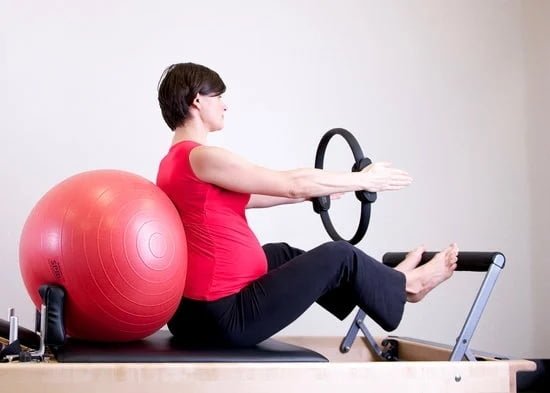Introduction
Obtaining a park permit for personal training can be a complicated and time consuming process. Depending on the city or county in which the training takes place, local regulations may vary greatly. In most cases, if a trainer is using the area beyond the normal recreational activities that would usually require no permit such as walking, jogging, and cycling, then there is likely a permitting requirement for additional activities like personal training sessions.
Every jurisdiction has its own rules when it comes to exercising in public parks so trainers must be aware of these requirements before leading any training sessions. Obtaining a park permit will typically involve submitting an application along with payment of the associated fee. The application should include all necessary information needed to process the permit; this includes but is not limited to: description of activities taking place during the session, expected number of participants, preferred times and dates for use of the particular park space or facilities, insurance documentation and release forms signatures from all participating parties or their representatives. Once complete and submitted to the relevant authorities other matters like safety considerations will also need to be reviewed before approval.
Once approved trainers must follow any additional guidelines set out by the local government body or risk commiting an offense punishable by suspension or cancelation of their permit. Since these rules can differ from one location to another it is important for trainers seeking permits in multiple locations to research the specific requirements thoroughly prior to submitting an application.
The Advantages of Using a Park for Personal Training
Using a park for personal training provides many advantages to those seeking to get into better shape. Firstly, parks provide a natural environment to exercise in and, as such, create a more enjoyable experience than being stuck indoors in a gym or other indoor workout space. This is beneficial because it encourages clients to stick with the program and continue working out on a regular basis. Additionally, using a park can be both cost-effective and time-saving since you don’t have to worry about paying for expensive gym memberships and exercise equipment rentals. Furthermore, there are often no issues regarding overcrowding as parks are large enough that several people can work out at the same time while still maintaining an appropriate distance from one another. Lastly, exercising in the great outdoors is proven to improve your mood and mental health by boosting endorphin levels and allowing you to connect with nature. With these factors considered, it is evident that if used appropriately parks can be a very effective venue to undertake personal training sessions.
Recognizing the Various Park Permits and Their Benefits
Park permits for personal training in parks are important for a variety of reasons. The most important aspect is that these permits allow people to legally teach and train others within the designated areas of a park or recreation facility. Additionally, permitting provides an income stream to parks that helps pay for maintenance and upgrades to facilities, as well as other services. These permits often come with liability insurance in case of accidents or injuries while teaching or training sessions take place on park grounds. Additionally, some park permits even provide access to certain amenities like ball courts and playgrounds that are not accessible without the permit. Furthermore, having a permit can also give personal trainers discounts on rental fees at certain facilities. Finally, using a permit allows trainers to become more legitimate by displaying their credentials and showing they care about their position within the community and its rules and regulations.
Overall, obtaining a park permit for personal training in parks is beneficial because it not only provides legal protection but also offers various benefits like access to amenities or discounted rental fees. It is important for personal trainers to understand their local laws regarding permits so they can be sure that they are compliant when conducting business in any public parks or recreational areas. Moreover, having valid proof of park permission is essential as it may also be asked from clients prior to beginning any session.
How to Choose the Right Permit for Your Personal Training Needs
When it comes to providing personal training in parks, having the right permits is essential. Doing so ensures that you are adhering to all of your local regulations and have the designated areas for your services. All around the country park districts have different permit applications and processes, so it is important to be aware of what is required by the state or city where you will be conducting your training.
First and foremost, familiarize yourself with all of the permit requirements that are necessary to provide personal training in parks in your area. These can include insurance policies, proper licensing, special use designations, and restrictions on hours or seasonally-appropriate settings. Once you understand exactly what each permit entails and the costs associated with them, you can then determine which one(s) will meet your business needs.
It’s also a good idea to look into how many spots may be available for each individual permit—this way you know if there’s enough room for everyone who wants to participate in your classes or events. Additionally, reach out to any municipal contacts who may be able to provide additional guidance on obtaining permits for personal training in parks as well as answer any further questions you may have about terms and fees associated with them. There may also be certain organizations that offer perks such as discounts or subsidies need for those who are providing their services in public spaces like parks. Be sure to investigate these options thoroughly prior to committing so that you get the best value for money!
Essential Considerations When Applying For a Park Permit
When applying for a park permit to conduct personal training, there are several essential considerations. First and foremost, you must research the regulations of the specific park in which you wish to operate. Each park may have different rules and guidelines regarding fitness activities conducted in the area, so it is important to become familiar with these stipulations. Additionally, although each park differs in regulation, there are some basics that all permit holders should ensure they are compliant with. For example, most parks will require a sound permit if audiovisual equipment or amplified sound is being used during the session. Also, if any equipment will be moved from one area of the park to another as part of your training session you should adequately prepare for this by obtaining an appropriate vehicle permit if necessary. Park permits also usually limit services to certain areas within the park grounds, making it important for trainers to know exactly where they are permitted at all times. Finally, the type of activity and the number of people engaging in those activities may need to be specified when applying for a permit. In order to receive approval from authorities it is crucial that all information stated on a permit request is accurate and valid.
Final Thoughts
Permits for personal training in parks can be an effective tool in maximizing the use of parks and other public areas for fitness sessions. By requiring a permit, it allows the governing agency to monitor and control the maximum number of personal trainers who will be operating in the same space at any one time. Permits also serve to certify that each trainer is properly qualified to safely conduct their workout session with their clients. With proper permitting, local governments and park managers can ensure that all individuals enjoy a safe environment while conducting exercise activities. Furthermore, by setting limits on how many people or groups can occupy a certain area at once, it allows people to have more room and less competition while doing their workouts. Lastly, permits raise awareness on the necessity of safety precautions done prior, during, and post workout sessions. All gym-goers should observe basic rules of hygiene as well as following protocols set by local health ordinances or applicable laws. With these guidelines enforced through permitting processes within parks, it encourages users to respect its purpose while obtaining value out of using public spaces.
Appendix
Websites – Check your local city and county government websites for information about obtaining a permit to offer personal training services in parks. These websites will provide details about the application process and any associated fees.
Community Centers – Community centers are often well-connected to the parks in their area so it can be beneficial to reach out to the representatives at these locations for true insight on the park permitting process. They may also have contacts who are familiar with current ordinances that could help you get connected with an official representative authorized to grant permits.
City Council Meetings – If you cannot find an answer on your own, attending a city council meeting could determine if they have any policies regarding permits for offering one-on-one or group fitness instruction in parks. It is important to note that while requests may be brought up at these meetings, formal action will only be taken after adequate time has been given for discussion.
Law Library Attendance – Some cities make park permits easily accessible online, but others may require physical forms or paperwork instead. Going to a law library in your city can help you research local laws related to using public parks for business purposes and finding where such forms must be filled out and submitted. Additionally, libraries can provide assistance from workers regarding regulations and procedures.

Passionate about providing useful information to anyone with an interest in the field of Personal Training, I strive to pass on to our readers quality information and to answer any questions about Personal Trainers, the work they do and how to become one.





